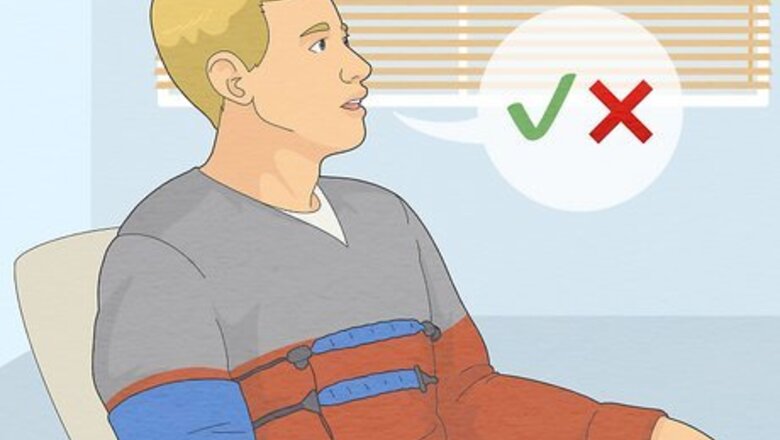
views
- Answer questions vaguely to avoid providing enough data to spot your lies.
- Use as few words as you can and speak calmly, without hesitation.
- Clench your sphincter while answering questions to trick the polygraph into thinking you’re lying.
- Remember that polygraphs are unreliable even in ideal circumstances, so don’t let the interviewer scare you with promises they’ve got you cornered.
Countermeasure Tricks
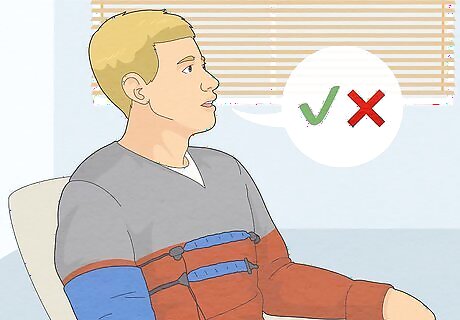
Minimize how much detail you use in your answers. “Yes” and “no” are the only things you need to say when answering questions. Resist the temptation to explain your answers or to go into details to minimize how much information you give the interviewer. Be courteous and cooperative, but do not offer any more information than is absolutely necessary.
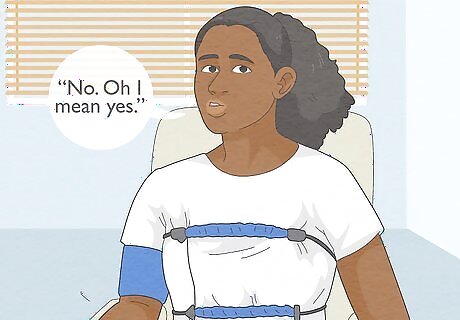
Sprinkle small omissions and lies into the control questions. The control questions are the matter-of-fact queries that are either fact-based or extremely vague. These questions are designed to set a baseline for how your body reacts to telling the truth. Do your best to appear honest, but make minor admissions or mistakes on these questions to throw off their rubric. For example, if they ask you, “Is today Tuesday?” you might answer, “No” even though it is. As soon as you “realize” your mistake, apologize and say “Oh, I mean yes.” As another example, if they ask you, “Are you from Chicago,” you might say, “No” on the grounds that you were actually born in a hospital in the suburbs of the city.
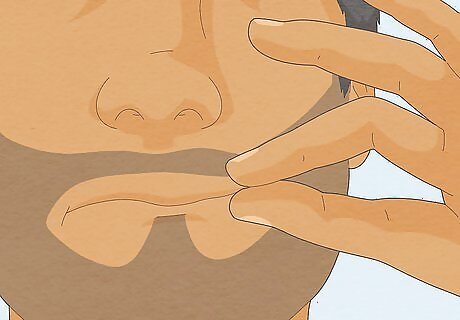
Don’t confess to anything relevant or important. No matter what the lines on the chart look like, nothing is more certain or damaging than an outright confession. The polygrapher will most likely try to convince you that they can “see” a lie in your polygraph, even if there’s nothing abnormal there. Don’t fall for it. Remember that the job of polygraphers is to extract confessions. In many ways, the whole examination is a complex ruse to trick you into admitting something.

Answer questions firmly, seriously, and without hesitation. This is no time to joke around or try to be crafty. You want to appear earnest, cooperative and resolute. Even if you’re lying, do it with conviction and neutral energy. The more time you take to actually answer, the more information you’re giving away for free. Avoid changing your tone to try and emphasize something. All of those tonal shifts can make it look like you are lying when you lie.

Breathe at a stable, normal rate the entire time. The polygraph is measuring your body’s basic reactions—how much you sweat, your heart rate, your pulse, etc. All of this is closely related to your breathing. By keeping your breath steady, you’ll minimize the odds that you tip your hand when you tell the truth or lie. Alternatively, you could try to accelerate your breathing whenever you’re asked a control question. That way, you can trick them into thinking your “lie” response is actually your “truth” response.
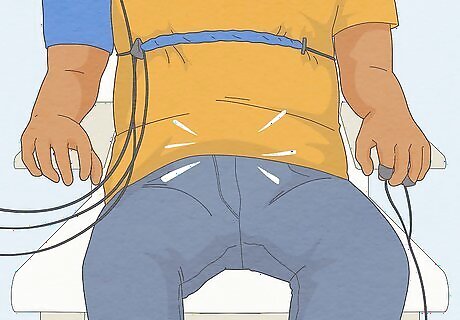
Try clenching your sphincter throughout the interview. It sounds strange, but stay with us here—clenching your butt like you’re trying to hold in a bowel movement will artificially raise your blood pressure and elevate your skin’s GSR response (a fancy term for your sweat on the skin). Since a polygraph measures both your GSR and blood pressure, this is a slick way to trick the machine. GSR is short for galvanic skin response. This is basically what you feel whenever your hands sweat or turn dry when you’re nervous (it happens all over your body, you just don’t notice it).
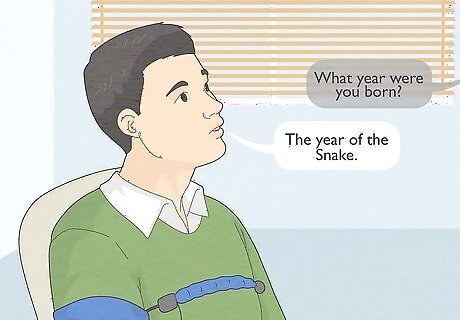
Answer control questions strangely to ruin the results. If you never give the polygrapher a real baseline to work off of, they won’t be able to spot what’s true or false. When you are asked a question that is obviously a control question, answer in a vague or odd fashion. For instance, if you're asked what year it is, you might respond with, “the year of the snake.” Your goal is to make it difficult for the tester to get a bead on what a normal response is for you.
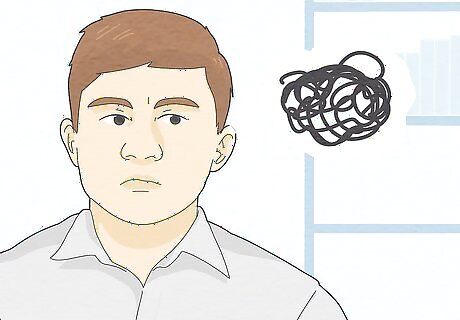
Think of something stressful when telling the truth. If you can artificially worry yourself when answering a question, you can modify the results of your test so that your response appears false. If you’re asked something you obviously know the interviewer knows the answer to, answer truthfully but think of something embarrassing or scary while you do it. This will boost your heart rate and skew their interpretation of the results. If you want a potentially extreme alternative, some people put a tack inside of their shoe. Whenever they tell the truth, they poke their foot to artificially stress their body out.

Relax during the post-test interview knowing it’s bunk science. After you’re disconnected from the machine, the polygrapher may leave you in the room for a while and come back. The polygrapher may then claim to “know” that you are lying about something. This is a trick. Polygraphs have been proven to be inaccurate on their own normally, and your countermeasures 100% sealed the deal. Remain calm and firmly but politely repeat your denial. Don’t change or augment your answers and decline extended post-test interviewing if possible.
Staying Alert

Remember that the polygrapher is not your friend. The polygrapher may try to convince you that they’re on your side and will help you out if you’ll just be truthful. This is probably a ruse, so don’t buy it. Don’t go out of your way to be rude or anything, but remember that they’re just being friendly to try and get you to drop your guard.

Ignore any pre-test declarations about accuracy. Polygraphers will frequently attempt to instill fear in the subject or convince them that the test is super accurate before it starts. This is designed to put you on edge and make you more likely to tip your hand. They’re just trying to freak you out, so don’t let them get to you. Frankly, even if you miserably failed to perform any of the countermeasures, there’s still a very good chance that the results are unclear. Polygraphs just aren’t very accurate.

Expect some alarming questions ahead of time. Get ready to air some dirty laundry. Some polygraph questions are explicitly designed to scare you into feeling embarrassed, nervous, or unsure. By anticipating the worst ahead of time, the impact of the questions just won’t seem so scary at the moment.
Question Types

Identify the 3 types of questions as they’re asked. There are 3 categories of questions. Knowing which one you’re being asked will help you identify whether a countermeasure is required at that time. You will be asked relevant, irrelevant and control questions. Irrelevant questions are those that are obvious, such as “What is your name?” or, “Are the lights on in this room?” They’re finding your “truth” response. Control questions are testing your reactions to relevant questions will be compared. “Have you ever lied to get out of trouble?” is a classic example. These questions measure your “lie” response. Relevant questions are the important ones, such as “Did you leak that memo to the media?” or, “Have you ever sold drugs?” These are the compared to your “truth” and “lie” responses.

Conceal your knowledge of polygraphy. The polygrapher may ask you if you’ve done any research on polygraphs or if you know anything about them. Just play it off like you have no idea what’s going on. Act as though you don’t know much about polygraph examinations, but that you do believe polygraphy to be a science and polygraphs are reliable. The polygrapher may try to trick you by mentioning certain technical terms and acronyms such as, “Your test came back NDI.” While you will know that “NDI” means “no deception indicated,” just act as though you have no idea what it means. Too much knowledge of the process may make the polygrapher think you’ve got something to hide, even if you don’t.
Preparation

Learn about polygraphs. If your career or court case depends on it, wouldn’t you do as much research as you can? Read about what they are and how the process generally works. The most important thing to know is that polygraphy is not an exact science. In fact, it is not a science at all. It was created by interrogators, not scientists, and frequently produces incorrect results. Polygraphs measure your body’s blood pressure, skin reactions, and heart rate. The theory goes that people physically reveal they’re lying by sweating, increasing blood pressure, or increasing their pulse. In reality, many people are perfectly capable of lying without having a physical reaction, and many people will have physical reactions when telling the truth just because they’re nervous.
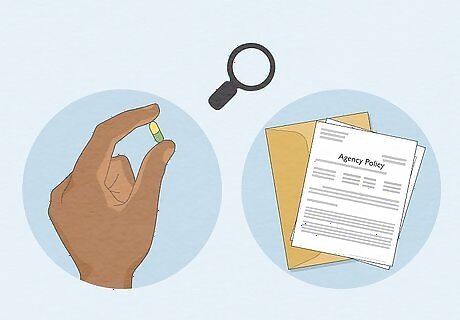
Find out what the tester is looking for. A polygraph examination is administered to help find out specific information, such as whether you’re a spy or whether you’ve used drugs. If your test is prompted by a specific incident, you probably know what the examiner is looking for. For pre-employment screening tests and the like, research the company or agency’s policies to determine what you can and cannot admit.

Practice the countermeasures in advance. Practicing these beforehand can greatly increase the likelihood that you will “pass” the polygraph examination, but only if you do them right. Once you read about the measures, practice them regularly in the days leading up to the test so that you’re thoroughly prepared.

Approach your whole “polygraph day” as a single test. Treat the polygraph examination as an extreme job interview. Dress conservatively and appropriately, and try to make a good impression before the test. Be sure to arrive on time and, unless it's the direst of circumstances, do not reschedule or attempt to postpone the exam. Be aware that your every move is very likely being observed from the moment you arrive at the testing location. There may be hidden cameras in the waiting room, and there is almost certainly a camera or two-way mirror in the polygraph room. Your polygraph examination begins long before you are hooked up to the machine and ends only when you’ve left the testing location.




















Comments
0 comment